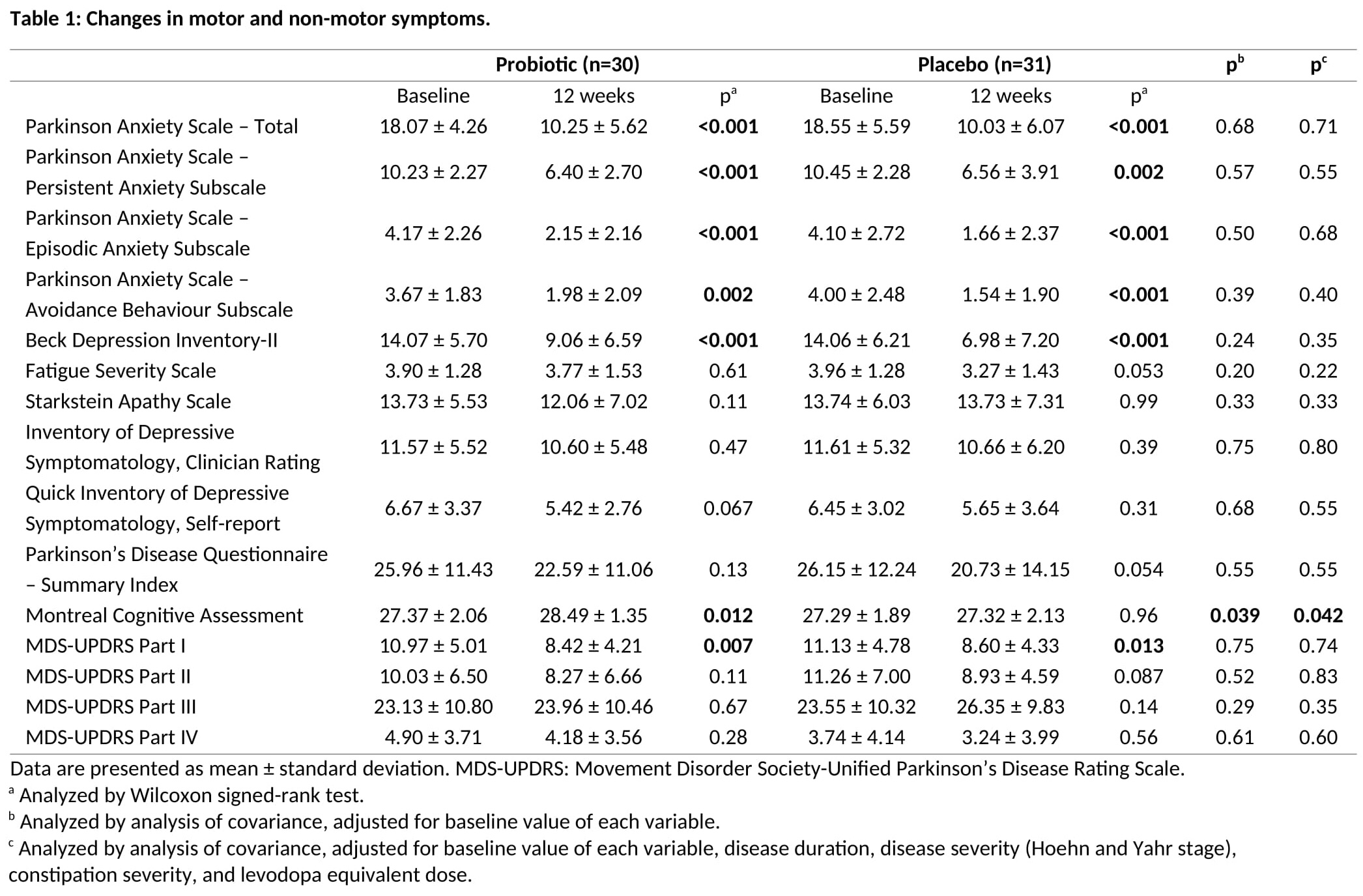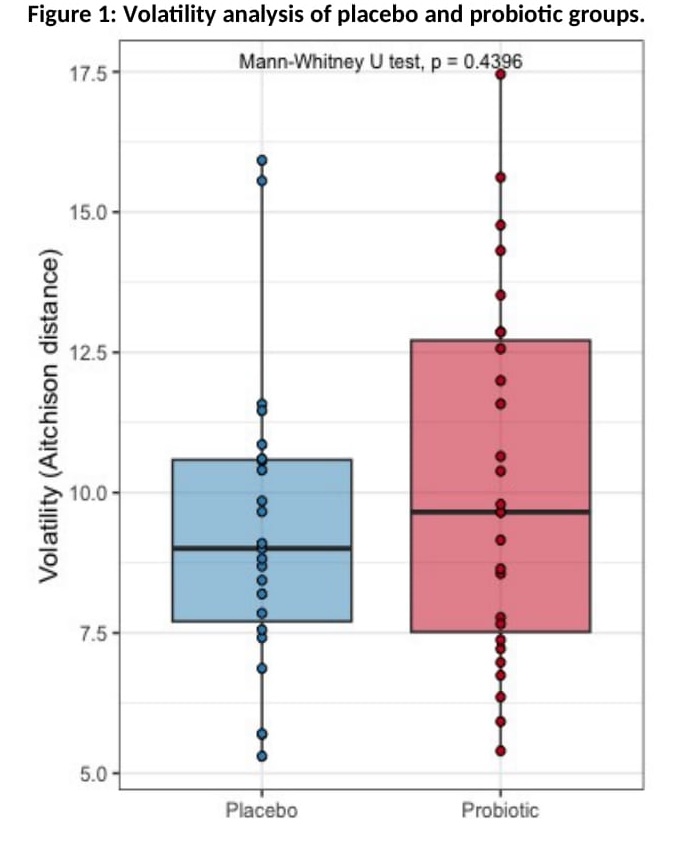Category: Parkinson’s Disease: Clinical Trials
Objective: To evaluate the effect of a multi-strain probiotic on anxiety in patients with Parkinson’s disease (PD).
Background: There is a lack of dedicated randomized controlled trials of any treatment for anxiety in PD. Growing evidence supports a role of gut microbiota dysbiosis in PD and in anxiety and depressive disorders. Probiotics have been shown to improve constipation in PD, but their effect on anxiety, other symptoms, and gut microbiota remains largely unexplored.
Method: We conducted a randomized, double-blind, placebo-controlled trial in 61 PD patients with anxiety according to the Parkinson Anxiety Scale and the Mini International Neuropsychiatric Interview (NCT03968133). Patients were randomized (1:1) to either receive a nine-strain probiotic (twice daily; n=30) or placebo (n=31) for 12 weeks. Pre- and post-intervention measures of anxiety (primary outcome) as well as depression, fatigue, apathy, cognition, and motor symptoms (secondary outcomes) were compared using intention-to-treat analysis. Fecal samples were analyzed using shallow shotgun sequencing.
Results: Both groups showed a significant reduction in anxiety, depression, and MDS-Unified Parkinson’s Disease Rating Scale part I scores following the intervention, and no significant between-group differences were found (Table 1). Interestingly, the probiotic group showed a significant within-group improvement in the Montreal Cognitive Assessment (MoCA) scores (p=0.012). Between-group comparison using analysis of covariance revealed that the probiotic significantly improved MoCA scores (p=0.042). Alpha and beta diversity indices and differential abundances of bacterial taxa post-intervention did not differ between groups. Volatility analysis demonstrated a greater degree of change in the microbiome in the probiotic group, albeit the difference was not significant (p=0.44; Figure 1).
Conclusion: This trial was the first to test a probiotic for anxiety in PD. Although no group differences in anxiety or gut microbiota were observed, the multi-strain probiotic appeared to improve cognition. Our findings align with trials of the same probiotic, showing improved cognitive reactivity in depressed individuals without affecting depressive symptoms or gut microbiota [1], and enhanced working memory under stress in healthy individuals [2]. A dedicated trial using sensitive and specific cognitive measures for PD is currently underway.
Table 1
Figure 1
References: [1] Chahwan, B., Kwan, S., Isik, A., van Hemert, S., Burke, C., Roberts, L. (2019). Gut feelings: A randomised, triple-blind, placebo-controlled trial of probiotics for depressive symptoms. J Affect Disord. 253: 317–326. [2] Papalini, S., Michels, F., Kohn, N., Wegman, J., van Hemert, S., Roelofs, K., Arias-Vasquez, A., Aarts, E. (2019). Stress matters: Randomized controlled trial on the effect of probiotics on neurocognition. Neurobiol Stress. 10: 100141.
To cite this abstract in AMA style:
J. Lam, P. Uzelman, J. Zhu, D. Meng, F. Pio, S. Appel-Cresswell. A Randomized, Double-Blind, Placebo-Controlled Trial of a Multi-Strain Probiotic for Anxiety in Parkinson’s Disease [abstract]. Mov Disord. 2024; 39 (suppl 1). https://www.mdsabstracts.org/abstract/a-randomized-double-blind-placebo-controlled-trial-of-a-multi-strain-probiotic-for-anxiety-in-parkinsons-disease/. Accessed January 5, 2026.« Back to 2024 International Congress
MDS Abstracts - https://www.mdsabstracts.org/abstract/a-randomized-double-blind-placebo-controlled-trial-of-a-multi-strain-probiotic-for-anxiety-in-parkinsons-disease/


